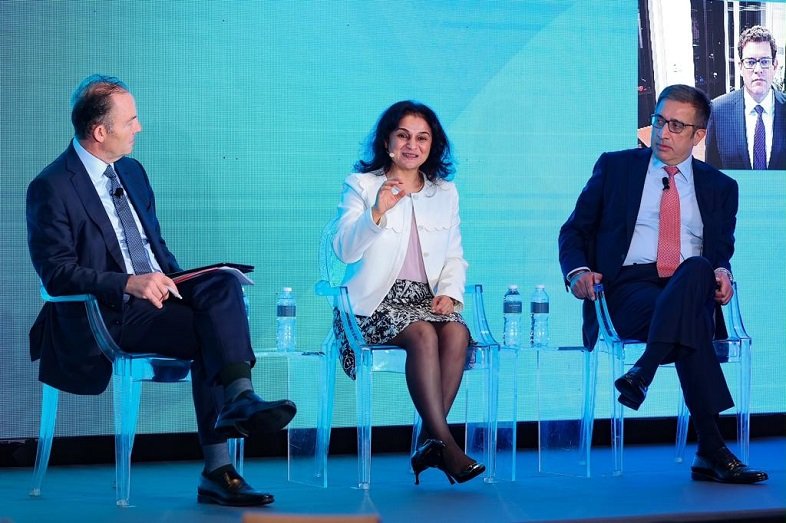Key Highlights from CIO Panel at Franklin Templeton’s APAC Investor Forum 2022

25 November, 2022-Franklin Templeton hosted on November 17, 2022, the APAC Investor Forum 2022, a hybrid event in Singapore that brings together a panel of investment experts, including our CIOs and Portfolio Managers from our collection of Specialist Investment Management teams, to discuss the evolving macro environment that investors face today and the potential investment roadmap for the next decade.
In the CIO panel moderated by Stephen Dover, Chief Market Strategist and Head of the Franklin Templeton Institute, panelists shared their insights into the potential real and financial ramifications of a recession and the shifting economic landscape.
Commenting on the likelihood of a global recession, China’s outlook and the implications for investors, Dover said:
“While many indicators point to a high likelihood of a recession in the next 12 months, the potential severity is still an open question. Asia appears to be well positioned relative to other regions in terms of inflation as the issue of elevated housing prices and labor shortages have not been as acute as it has in places such as Europe. The dynamics in China are diverging from the rest of the world and could leave its economy in a better position if monetary policy remains loose and COVID restrictions begin to ease. China’s relationship with the United States will be an important issue to watch in terms of China’s growth path in both the near and long term.”
Commenting on the inflation outlook and opportunities in fixed income markets, Sonal Desai, Chief Investment Officer, Franklin Templeton Fixed Income, said:
“I think inflation will prove more persistent than financial markets would like. Coming down from the 9-10% peaks is relatively easier as the energy shock fades, but bringing it all the way down to 2% will be a lot harder. The Fed will need to bring the fed funds rate to about 5.25% and keep it there long enough for the economy to cool. Other global central banks will also need to maintain a tighter monetary stance. On the flip side, I think we are only looking at a moderate recession in the US, and this will offer some support to Asia and the rest of the world. Higher yields are creating new opportunities in fixed income: it is finally starting to generate income again. Yields are likely to rise further, but as we get closer to the peak of the cycle, investment-grade bonds and US Treasuries stand to benefit first.
“Looking across riskier asset classes like high yield and emerging markets, over the next few quarters I believe selective security selection will allow investors to start taking advantage of yields which in many cases are now running above 10%. At the top of my list of concerns is the fallout of a decade and a half of ultra-loose monetary policies that have led to a lot of risk-taking in markets, which is now resulting in bouts of instability and volatility: think of the sudden plunge we saw in UK bond prices and FX or the recent trouble in US crypto assets. We could get a bigger shock that hits global financial markets, and that would impact Asia as well – it’s an unknown if you will.”
Commenting on the outlook for global and emerging market equities, ManrajSekhon, Head, of Templeton Global Investments, said:
“Tightening global financial conditions and the heightened geopolitical environment have driven cross-currents that created a difficult market over much of 2022. Signs of some thawing in these conditions suggest that the market outlook into 2023 will prove quite different. Investors will have to grapple between continued deteriorating fundamentals in the short term alongside attractive valuations and a more benign policy outlook as we look toward the next 12 months. This will provide an attractive hunting ground globally for active stock pickers with a medium to longer-term outlook.”
